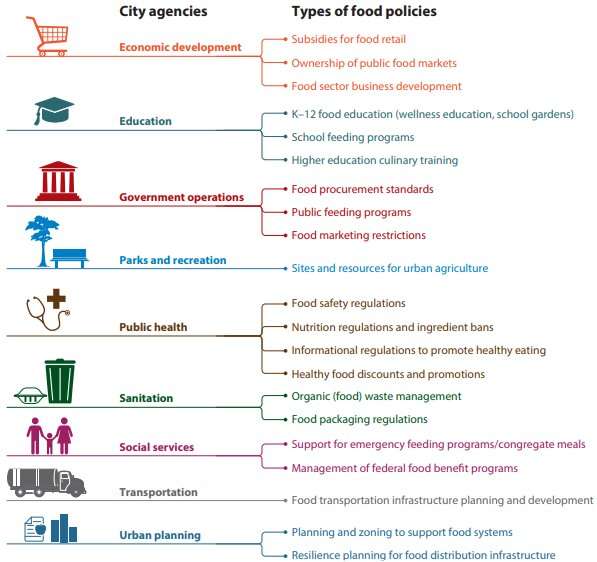Select urban food policy types by municipal agency. The figure illustrates the range of policies and programs, from food retail subsidies to food waste management, that municipal agencies use to create healthful food systems. Credit: Annual Review of Public Health (2021). DOI: 10.1146/annurev-publhealth-052220-021059
A new article by Associate Professor Nevin Cohen published in the Annual Reviews of Public Health explores the roles that cities play in creating healthier food environments, and the effects of urban food policies on public health.
Despite wide-ranging policy initiatives over the past few decades, the results have been mixed, revealing persistent disparities in food insecurity and malnourishment, Cohen writes. He discusses promising new pathways for urban food policy: engaging in food-focused urban planning to create equitable food environments; treating policies to address inequality and social justice as upstream food policies; considering the effects of new business models such as online food retail in urban food policy making; and using food procurement as a lever to influence regional, national, and global food systems.
"For decades, cities have implemented wide-ranging policies to improve access to healthy food, with inconsistent results," Cohen says. "To be more effective, cities will need to shift attention to upstream determinants of malnourishment and recalibrate programs to account for a changed post-pandemic food retail sector."
More information: Nevin Cohen, Roles of Cities in Creating Healthful Food Systems, Annual Review of Public Health (2021). DOI: 10.1146/annurev-publhealth-052220-021059
Provided by The City University of New York
























